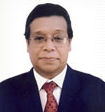

Mr Hassan, over the years Grameen Group has created its philanthropist identity. Please share with us a word on the identity it owes to itself in corporate world of textile and garment making.
Grameen Knitwear Limited is a private company limited by shares which is owned by two Grameen family of Companies i.e. Grameen Kalyan and Grameen Fund. These two companies are not for profit company with the aim to maximize the welfare of the poor instead of maximizing profit unlike any other profit earning enterprises.
Grameen knitwear indirectly involved in the process through payment of dividend to its owners whose objectives as explained above are primarily focusing into eradicating the poverty through creating conditions in which the disadvantaged sections of the population may have access to resources.
In addition, we request your views on significance the sector makes in economic survival of your country and fellowmen.
For Bangladesh, the Garments sector lays the golden eggs for over 30 years.
This sector is the country's leading export revenue earning sector and has had far reaching implications for the society and the economy of Bangladesh.
Today the apparel export sector is a multi billion dollar manufacturing and export industry with over one and a three million workers, mostly female employed in semi skilled and skilled jobs.
What concern would you show on the fact of labor unrest issues that have always been heartache of the industry in Bangladesh?
Labour unrest is one of the biggest threat and impediments against the growth and stability of the industry. In recent past several incidents happened where the agitated labours and the outsiders have caused lots of damages. One of the major factor was wage structure of the worker. From 1st November 2010 the workers are getting new wages declared by the Government.
As such no worker unrest prevails. Government efforts along with the association i.e. BGMEA & BKMEA are always vigilant and keep close monitoring on this issue so that nothing happens beyond control.
Adding to woes of the industry, there remain bottlenecks of gas and power supply scarcity. Isn't it?
Despite power and gas scarcity industry grows, though not in a good pace.
Entrepreneur resorted to alternate way which eventually increases the production cost. Exploration of new gas field is underway and number of proposal for setting up power plant is under consideration by the Government. Hopefully, it will be solved, otherwise we have to go for alternative energy.
RMG sector is to see duty waiver from Indian Government shortly. How will this bid for your sector and business?
It was presumed that the Garments would suffer a huge setback due to withdrawal of quota by USA but in reality it isn't. That time I was optimistic, similarly nothing will happen due to duty waiver by India on RMG sector.
As some recent studies, show Japan makes a lucrative market for Bangladesh. What are your plans to capture market share therein? Which all other countries do you export to?
Four years back mostly no Japanese customers are interested to take garments from Bangladesh. They afraid that our garments are lack of quality but in reality we are able to produce very high quality garments as well as technical and functional garments. Hence, now big company from Japan started their own office in here. Therefore, Japanese buyers come automatically and market will be captured by Bangladesh.
South America, Australia and Russia also are prospective market.
Cotton yarn is important raw material for your group. How will you narrate difficulties due to recent happenings in Indian cotton, in particularly the ban on yarn exports?
Cotton price is going up sharply. It is not only India ban it to export. Other problem is flood in China, Pakistan and Australia (Australia is the biggest exporter of Cotton fibre). Now adding the fourth problem, the Egypt crisis. So, buyer will look for fibre diversification like cotton to semi cellulose fibre, more synthetic and cotton blended with other fibre yarn will be used for garments to meet the shortage of cotton.
How do you envisage dawn to another decade for Bangladesh textile & Garments industry overall?
The dominance of this sector in the overall economy is enormous which we think will continue inspite of some obstacles. I am personally fully optimistic about the future of this sector. It will grow very fast and may be we topped the list as number one garments manufacturer of the world.
#######
DISCLAIMER: All views and opinions expressed in this column are solely of the interviewee, and they do not reflect in any way the opinion of Fibre2Fashion.com.